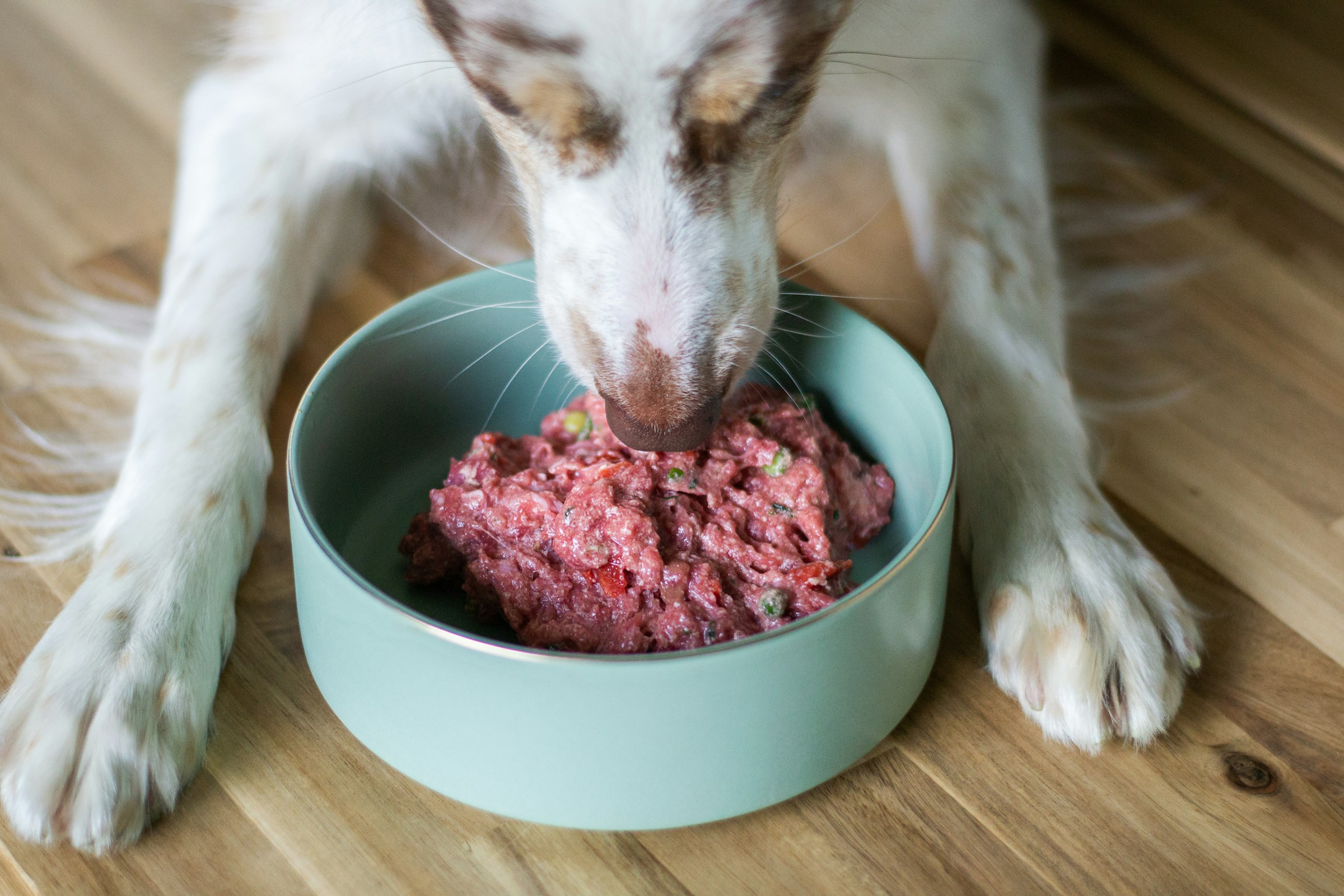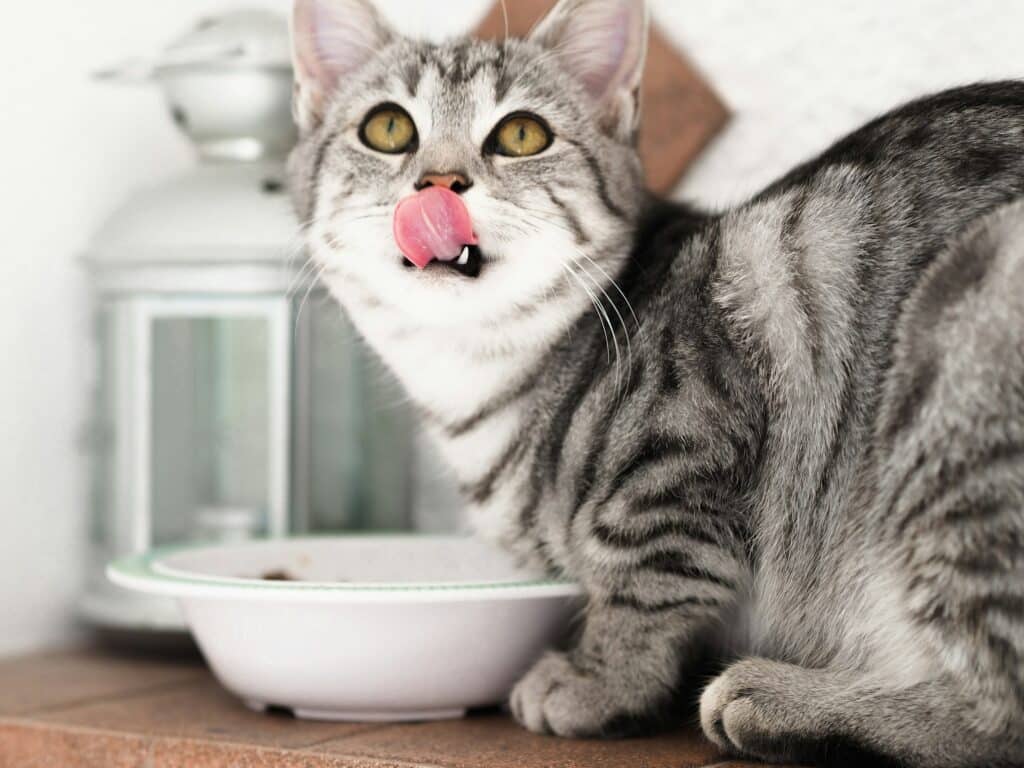
Caption: Ensure raw food has the right balance between muscle, organ meat and bone with limited amounts of carbohydrates.
Modern pet food options are more diverse than ever, but that doesn’t mean they all meet the nutritional needs of the animals they claim to serve. While kibble or dry food, canned items and trendy raw blends all have their place, the real question is whether what you’re feeding your pet aligns with what their species is biologically designed to eat.
Species-appropriate nutrition is a framework for feeding animals in a way that respects their natural diets and includes the foods their bodies evolved to digest, absorb and thrive on. This concept isn’t about fads or elitism — it’s about your pet’s wellness at the cellular level.
Here are some key takeaways to know about this feeding method:
- Species-appropriate diets match an animal’s biological and evolutionary dietary needs.
- Feeding outside a species-appropriate model can lead to long-term health complications.
- Understanding the unique needs of different animals helps pet owners make better choices.
Understanding Species-Appropriate Nutrition
Species-appropriate feeding refers to how animals would eat in the wild. It considers the animal’s digestive anatomy, metabolism and nutritional needs based on evolution. For example, dogs are facultative carnivores — meat-eaters that can live exclusively off vegetables for a while.
While dogs can survive on various foods, they thrive most on a diet rich in animal proteins. Cats, by contrast, are obligate carnivores, meaning they can’t eat anything other than animal flesh. Domesticated and wild felines require meat for energy and essential nutrients like arachidonic acid and taurine, which only animal tissues contain in adequate volumes.
Birds, reptiles and exotic pets have similarly distinct food requirements, and when your pet’s diet strays too far from these biological blueprints, their health can suffer.
Why Eating According to Species Matters
Just as a human wouldn’t thrive on eating only protein powder, pets can’t live long term on diets that ignore their unique biology. The effects of poor nutrition are slow but cumulative.
A healthy-looking dog may seem happy on grain-based kibble but develop joint stiffness or skin issues years later. A cat fed plant-based protein may suffer irreversible eye or heart conditions due to taurine deficiency.
Feeding an inappropriate diet can lead to:
- Nutrient deficiencies, like insufficient taurine levels in cats
- Gastrointestinal issues and chronic inflammation
- Allergic reactions and skin problems
- Obesity and diabetes
- Reduced lifespan and vitality
Species-Specific Nutrition and Modern Pet Diets

Caption: Dry food can cause serious issues like obesity if your pet doesn’t meet their species-specific nutritional requirements.
Understanding what constitutes a species-appropriate diet for your pet can help you confidently navigate food labels and marketing tactics.
Cats should process high amounts of protein and fat, with minimal carbohydrates. These are loaded with nutrients that include taurine, animal fats and moisture. Fats provide energy and improve coat health, while moisture is vital to cats because they have a low thirst drive and benefit from wet or raw foods.
Many commercial dry foods contain high volumes of carbohydrates and plant fillers, which cats struggle to digest. A species-appropriate diet for felines typically includes raw or gently cooked meats, organ meats and high-moisture food sources.
Dogs are often mislabeled as omnivores, but while they can eat nonmeat-based foods for a short while, this is not ideal. They can digest some grains, fruits and vegetables, but their diet mostly depends on animal protein.
An appropriate meal plan for dogs includes animal-based proteins like chicken, beef or fish, organ meats like liver and kidney, moderate amounts of fat and a small portion of carbohydrates. Salmon, for example, is abundant in omega-3 fatty acids and supports joint and skin health. Many raw and fresh dog food brands now offer balanced protein-based diets.
FAQ
Is Dry Food Species-Appropriate for Dogs and Cats?
Most kibbles contain high levels of carbohydrates, which aren’t ideal for either species. Some premium dry pet food is better balanced, but raw or gently cooked food is typically closer to a natural diet.
Can Pets Adapt to Modern Diets Without Health Issues?
Some domestic pets appear to do well on commercial diets, but many chronic issues like obesity, skin allergies and digestive problems are linked to long-term nutritional imbalances.
Is Raw Food Always Better?
Handle raw food carefully to avoid bacterial contamination and balance it with the right proportions of muscle meat, organ tissue and bone. It’s best to follow recipes formulated by veterinary nutritionists.
What’s the Risk of a Vegetarian or Vegan Diet for Pets?
Don’t feed cats a vegetarian or vegan diet, as it can be life-threatening. They won’t get sufficient hydration or taurine amino acids. Dogs might survive on a plant-based diet, but they may often develop deficiencies unless they’re heavily supplemented or the diet is meticulously balanced.
How Can I Transition My Pet to a Species-Appropriate Diet?
Introduce food changes gradually over seven to 10 days by incrementally adding more of the new diet to their daily meals while decreasing the amount of their old food. Monitor for adverse reactions and consult your vet for pets with existing health conditions.
Rethinking What’s in the Bowl
Feeding your pet isn’t just about filling a bowl — it’s how you support a longer and healthier life for them. Species-appropriate nutrition is a science-backed way to honor the biology of the animal you share your home with.
Convenience and budget often shape what you feed your pet, but understanding their evolutionary needs can empower better choices. Every animal deserves food that nourishes them as nature intended.




